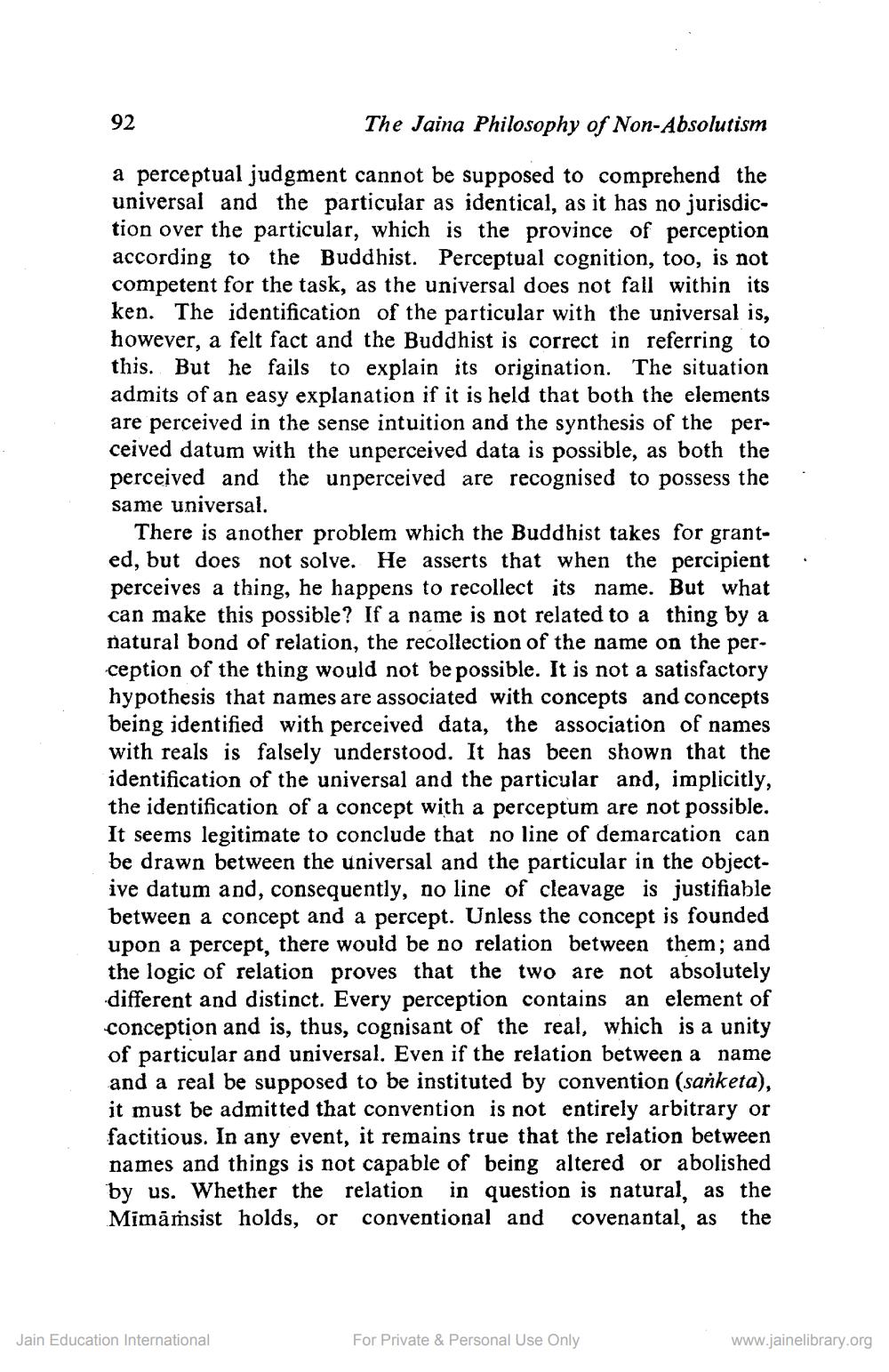________________
92
The Jaina Philosophy of Non-Absolutism
a perceptual judgment cannot be supposed to comprehend the universal and the particular as identical, as it has no jurisdiction over the particular, which is the province of perception according to the Buddhist. Perceptual cognition, too, is not competent for the task, as the universal does not fall within its ken. The identification of the particular with the universal is, however, a felt fact and the Buddhist is correct in referring to this. But he fails to explain its origination. The situation admits of an easy explanation if it is held that both the elements are perceived in the sense intuition and the synthesis of the perceived datum with the unperceived data is possible, as both the perceived and the unperceived are recognised to possess the same universal.
There is another problem which the Buddhist takes for granted, but does not solve. He asserts that when the percipient perceives a thing, he happens to recollect its name. But what can make this possible? If a name is not related to a thing by a natural bond of relation, the recollection of the name on the perception of the thing would not be possible. It is not a satisfactory hypothesis that names are associated with concepts and concepts being identified with perceived data, the association of names with reals is falsely understood. It has been shown that the identification of the universal and the particular and, implicitly, the identification of a concept with a perceptum are not possible. It seems legitimate to conclude that no line of demarcation can be drawn between the universal and the particular in the objective datum and, consequently, no line of cleavage is justifiable between a concept and a percept. Unless the concept is founded upon a percept, there would be no relation between them; and the logic of relation proves that the two are not absolutely different and distinct. Every perception contains an element of conception and is, thus, cognisant of the real, which is a unity of particular and universal. Even if the relation between a name and a real be supposed to be instituted by convention (sanketa), it must be admitted that convention is not entirely arbitrary or factitious. In any event, it remains true that the relation between names and things is not capable of being altered or abolished by us. Whether the relation in question is natural, as the Mīmāmsist holds, or conventional and covenantal, as the
Jain Education International
For Private & Personal Use Only
www.jainelibrary.org




